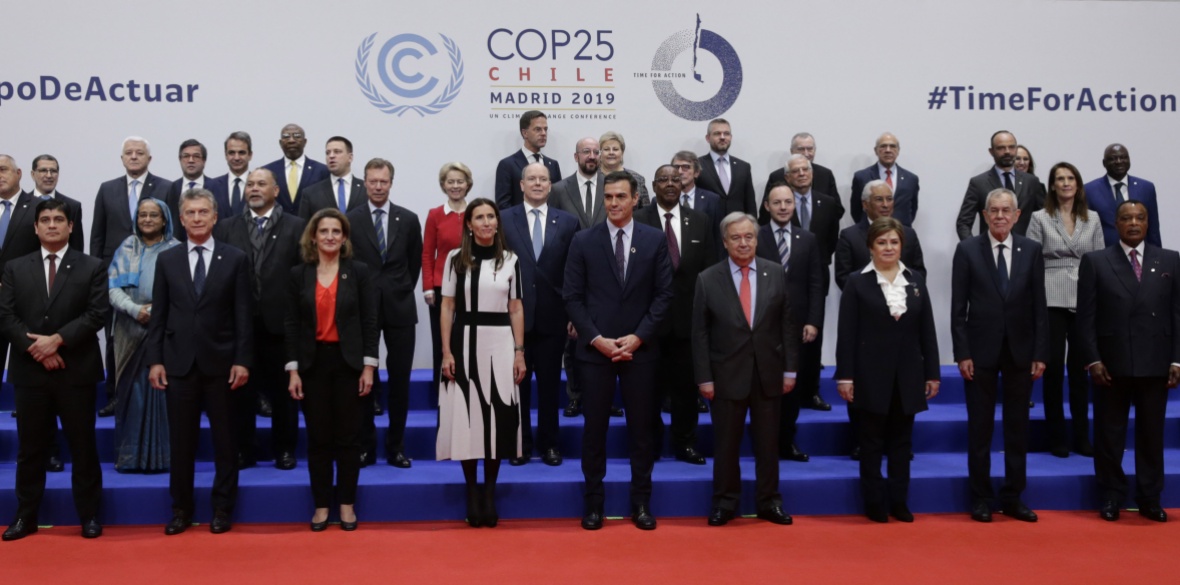This is the last article you can read this month
You can read more article this month
You can read more articles this month
Sorry your limit is up for this month
Reset on:
Please help support the Morning Star by subscribing here
CLIMATE talks have opened at the United Nations as the crisis means “the point of no return is no longer over the horizon.”
The words of UN Secretary-General Antonio Guterres should be taken seriously as the global impact of climate change requires an international response.
Extinction Rebellion’s protest actions and the school strike movement led by Swedish teenager Greta Thunberg have captured the mood of many young people for whom the environment is a major concern.
It has also put the climate emergency at the centre of political debate as Britain enters a crucial general election period, with the future of the planet at stake.
Mr Guterres warned ahead of two weeks of discussions that the next 12 months are crucial, stressing the need for “more ambitious commitment” from the major emitters of greenhouse gases.
We have a major opportunity next week vote for a government committed to a radical green new deal, not one that is in the pockets of big business acting in the interest of the world’s biggest polluters.
There is a good reason that PM Boris Johnson snubbed Channel 4 in the leaders debate on the climate — he is part of what climate activists have branded the “new denialism.”
This label is applied to those governments that accept the scientific consensus on climate change and sign pledges but effectively do nothing to address the issue.
Successive Tory governments have talked a good game on the environment — think David Cameron’s claim to the “greenest government ever” — but their track record tells a different story.
Experts and former government advisers have lined up to warn that Mr Johnson simply cannot be trusted with the future of the planet.
Tom Burke, who was a senior adviser to three Conservative environment secretaries, branded the Tory record on the environment “a disgrace,” accusing it of copying the libertarian right in the US.
He warned that the Tories have cut budgets to the Environment Agency and Natural England, reducing their independence and were set to miss targets to reduce carbon emissions from 2023 onwards.
Investment in roads stood at £28.8 billion, dwarfing the £78 million invested in electric cars and the £20m earmarked for local authorities to tackle air pollution.
This and the nine-year freeze on fuel duty had the environmental impact of putting an extra 2.5m additional cars on the road while their commitment to an extra runway at Heathrow comes as aviation pollution is rocketing.
That the Tory manifesto was drawn up by Rachel Wolf, a fracking lobbyist for Cuadrilla, should be deeply concerning. Their support for this industry is well documented.
Andrea Leadsom recently heaped praise on fracking companies and described the business as a “great opportunity for the UK.”
In their 10 years in power the Tories have steamrollered over local authorities that banned fracking and made it easier for companies to remove protesters from their sites.
It is no surprise that Tory ministers are five times more likely than their peers to vote against action on climate change.
Given the seriousness of the situation, with climate scientists warning that global warming must be limited to a 1.5°C rise, the future of the planet is at stake.
Jeremy Corbyn has committed to the green new deal with a pathway to net-zero carbon emissions by 2030, a ban on fracking and a pledge that a Labour government would invest in technology and create one million new green jobs.
The lines are clear — only Labour can deliver a programme for the future as opposed to the Tories who will march us into oblivion.











